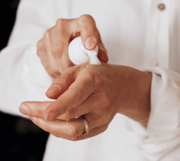Winter skin hits harder after 60—here are 9 dermatologist-approved secrets you can try today
- Replies 0
The colder months bring cozy rituals, warm drinks, and extra layers, but the season also brings a kind of dryness that can catch anyone off guard.
Many older Americans notice their skin becoming tighter, flakier, or more uncomfortable as temperatures drop, especially as natural moisture levels decline with age.
While winter dryness is common, it can be especially challenging for those who already manage conditions like eczema, psoriasis, or seborrheic dermatitis.
That’s why this dermatologist-backed winter guide offers simple adjustments that can keep your skin calm, comfortable, and glowing all season long.
And while rosacea (that persistent facial redness) is more often triggered by spicy foods, caffeine, or alcohol, the cold can still play a role for some. The bottom line: winter is a perfect storm for skin flare-ups.

Also read: A senior’s guide to preventative care during the colder months
Also read: You might be showering too long—experts share the ideal time
Read next:

What’s your winter skin struggle? Do you have a favorite moisturizer or home remedy? Have you tried any of Dr. Bhanusali’s tips—or do you have your own secrets to share?
Many older Americans notice their skin becoming tighter, flakier, or more uncomfortable as temperatures drop, especially as natural moisture levels decline with age.
While winter dryness is common, it can be especially challenging for those who already manage conditions like eczema, psoriasis, or seborrheic dermatitis.
That’s why this dermatologist-backed winter guide offers simple adjustments that can keep your skin calm, comfortable, and glowing all season long.
Why does winter take such a toll on skin
Cold air holds less moisture, and when you crank up the heat indoors, it dries out the air even more. Your skin’s protective barrier gets compromised, leading to increased dryness, flaking, and irritation. For those with eczema (itchy, dry patches), psoriasis (scaly, inflamed skin), or seborrheic dermatitis (flaky, often on the scalp), winter can be especially tough.And while rosacea (that persistent facial redness) is more often triggered by spicy foods, caffeine, or alcohol, the cold can still play a role for some. The bottom line: winter is a perfect storm for skin flare-ups.

Winter weather can worsen conditions such as eczema, psoriasis, and seborrheic dermatitis due to lower moisture levels and a weakened skin barrier. Image source: Nataliya Melnychuk / Unsplash
9 dermatologist-approved winter skin secrets
To help you face the frosty months with confidence, here is the best advice from celebrity dermatologist Dr. Dhaval Bhanusali—trusted by the likes of Hailey Bieber and Martha Stewart. Whether you’re dealing with garden-variety dryness or more stubborn conditions, these have you covered.1. Switch to a thicker moisturizer
Your lightweight summer lotion just won’t cut it when the mercury drops. Dr. Bhanusali recommends swapping gels and light creams for richer, thicker moisturizers. Look for ingredients like ceramides, shea butter, and squalane, which help lock in moisture and repair your skin’s barrier.2. Seek out calming ingredients
If you’re prone to redness or irritation, scan the label for niacinamide and azelaic acid. These ingredients soothe inflammation and can help keep flare-ups at bay. Plus, they’re gentle enough for sensitive skin.Also read: A senior’s guide to preventative care during the colder months
3. Moisturize more than once a day
If your skin is especially dry or you’re experiencing a flare, apply moisturizer in the morning and at night. For hands and feet, consider a midday touch-up, especially after washing.4. Use a humidifier
Central heating may keep you toasty, but it’s a moisture thief. Running a humidifier in your bedroom or living space can help restore humidity to the air, making it easier for your skin to stay hydrated. Your sinuses will thank you, too!5. Rethink your Shower routine
A long, hot shower feels heavenly on a cold day. However, hot water strips away your skin’s natural oils, exacerbating dryness. Dr. Bhanusali suggests keeping showers to five minutes or less, using lukewarm (not hot) water.Also read: You might be showering too long—experts share the ideal time
6. Skip the scrubs
Exfoliating can be tempting, especially if you’re dealing with flakes. But in winter, less is more. Overexfoliating can damage your skin’s barrier and exacerbate irritation. If you have very oily skin, you might exfoliate occasionally, but for most of us, it’s best to put the scrubs away until spring.7. Pat, don’t rub after bathing
When you step out of the shower, gently pat your skin dry with a towel. Rubbing can cause micro-tears and worsen irritation—especially if you’re already dealing with eczema or psoriasis.8. Apply moisturizer while skin is damp
Timing is everything! Slather on your moisturizer within a few minutes of stepping out of the shower, while your skin is still slightly damp. This helps trap water in your skin and boosts absorption.9. Know when to see a doctor
If your skin condition is moderate to severe, or if it’s impacting your quality of life, don’t hesitate to see a dermatologist. Prescription treatments or specialized care may be necessary, and no amount of over-the-counter cream will suffice.Read next:
- Beat winter's hidden dangers: Your complete guide to staying safe when temperatures drop
- The thermostat war just got more expensive: Smart strategies to stay warm without breaking the bank
- Winter-ready on a budget: 5 Dollar Tree essentials every senior should grab before the cold hits
Key Takeaways
- Winter weather can make skin conditions like eczema, psoriasis, and seborrheic dermatitis flare up due to increased dryness and a damaged skin barrier.
- A consistent skincare routine with thicker moisturizers (instead of lighter lotions or gels), especially those with soothing ingredients like niacinamide and azelaic acid, is recommended for cold months.
- Using a humidifier in your home during winter can help offset lower humidity and provide relief for dry skin.
- Limit your showers to five minutes or less with warm (not hot) water. Avoid over-exfoliating, and apply moisturizer straight after showering while your skin is still damp for optimal absorption.






